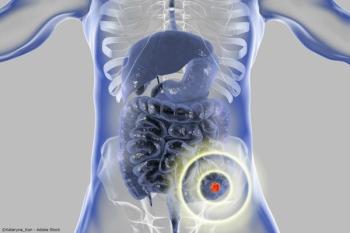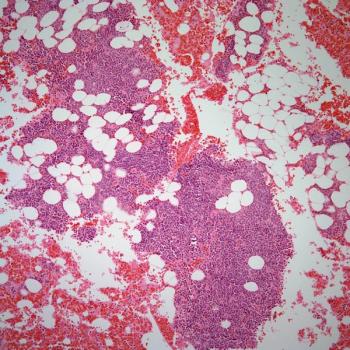
The deputy director at NYU Langone’s Perlmutter Cancer Center explained the importance of these agents and the development of clinical trials in this setting.

Your AI-Trained Oncology Knowledge Connection!


The deputy director at NYU Langone’s Perlmutter Cancer Center explained the importance of these agents and the development of clinical trials in this setting.

ASCO released new guidelines for treating patients with late-stage colorectal cancer based on previously existing guidelines using an expert panel.

The American College of Surgeons released guidelines for triaging surgeries of patients with cancer during the COVID-19 pandemic.

Researchers found that patients with cancer demonstrated deteriorating conditions and poor outcomes from the COVID-19 infection.

Researchers outlined a set of 6 recommendations detailing what strategies medical institutions should implement in the event that medical resources become scarce during the COVID-19 pandemic.

Researchers from SITC suggested the use of anti-IL-6 agents on a compassionate basis to treat hospitalized critically ill patients infected with COVID-19.

The FDA approved durvalumab (Imfinzi) as a first-line treatment for adult patients with extensive-stage small cell lung cancer in combination with standard-of-care chemotherapies, etoposide plus either carboplatin or cisplatin.

Researchers indicated that these results show the feasibility of this regimen and support the development of additional studies of melflufen in multiple myeloma, both in combination with dexamethasone as well as in triplet regimens.

Researchers suggested that the reduction of drug spending by using value-based clinical pathways to optimize chemotherapy utilization is possible and can increase the chances of a practice’s success within the Oncology Care Model.

Prostate-specific membrane antigen PET/CT was found to be a suitable replacement for conventional imaging in patients with prostate cancer, providing superior accuracy to the combined findings of CT and bone scanning.

These projections suggest that premature and sudden lifting of interventions put in place could lead to an earlier secondary peak of COVID-19, which could be flattened by relaxing the interventions gradually.

Researchers reported on the incidence and outcomes of the SARS-CoV-2 infection, which has been linked to COVID-19, in patients with cancer who were treated at a tertiary cancer institution in Wuhan, China.

Favorable toxicity profiles and antitumor activity seen in this phase II study of pembrolizumab supports further evaluation of the drug in this patient population.

The European Society for Medical Oncology released key answers to questions about the coronavirus disease 2019 (COVID-19) as it pertains to cancer care.

The FDA has approved a phase III clinical trial to assess the safety and efficacy of intravenous tocilizumab (Actemra) plus standard of care in hospitalized adult patients with severe COVID-19 pneumonia.

In this study, polypharmacy during the 6-month time period pre-IV chemotherapy was highly predictive of post-chemotherapy inpatient hospitalization.

Biomarkers of carcinogens, including several with a strong link to bladder cancer, were found to be present in the urine of e-cigarette users.

In a webinar, clinical oncologists spoke about the ways that their treatment practices and workplaces have had to change during the coronavirus disease 2019 pandemic and the ways they should continue to change.

The researchers indicated that the results could provide additional guidance for the decision-making process when clinicians are deciding on the most appropriate regimen for relapsed and/or refractory multiple myeloma.

According to researchers, black and Hispanic patients are less likely to undergo guideline recommended PET/CT imaging at NSCLC diagnosis, which could partially explain differences in survival.

The FDA has approved a 420 mg multi-dose vial of trastuzumab-dttb (Ontruzant), a biosimilar referencing trastuzumab (Herceptin).

The FDA Oncology Center of Excellence put out a statement regarding patients with cancer during the coronavirus disease 2019 (COVID-19) pandemic and how they are prioritizing their care.

In this study, researchers found that endoscopic therapy was the most effective strategy for patients with T1 CRC with less aggressive biomarker profiles and laparoscopic colectomy was the most effective for patients with more aggressive profiles.

Adults with advanced non-small cell lung cancer and impaired performance status experience significantly shorter survival after treatment with immune checkpoint inhibitors (ICIs) and receive ICIs more often than those with better performance status.

Breast cancer incidence in women aged 25 to 39 has been steadily increasing for the last 80 years, though researchers indicated that this increase cannot be attributed to changes in parity over time.

Though inflammatory bowel disease patients are generally at higher risk of HPV-related cancers, this data did not support intensified screening for vulvar or vaginal malignancies in female IBD patients.

The study also suggested that palliative care is rarely consulted for highly symptomatic patients with possibly curable cancer, highlighting the need for supportive care interventions.

A multi-institutional collaborative registry was created in order to quickly gather details from healthcare professionals related to cancer patients suspected or confirmed of having the novel coronavirus (COVID-19) resulting from infection with the SARS-CoV-2 virus.

These data suggest that clinicians should prescribe a short-term exercise program at the beginning of ADT to attenuate these important treatment-related side-effects.

This study suggested that PV prevalence among postmenopausal women may be high enough to warrant testing even in the absence of early diagnosis age or family history.